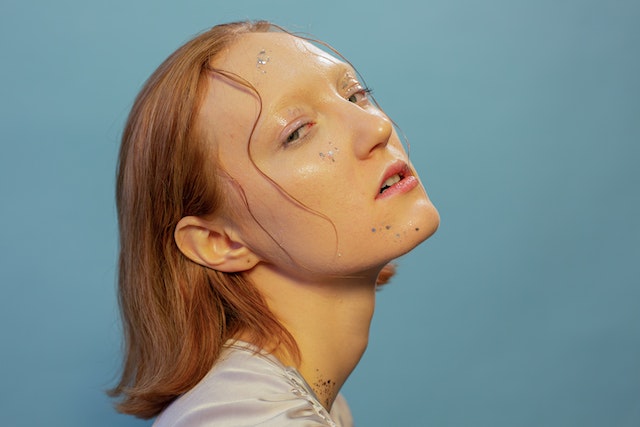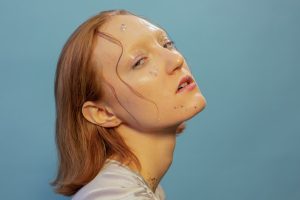- 28 June 2023
- 66
Managing Oily Hair: Expert Techniques for Grease-Free Locks

Comprehending the Science Behind Greasy Hair
The production of too much sebum by the scalp’s sebaceous glands is what causes oily hair. Sebum, the oil naturally produced by our scalp, plays a vital role in keeping our hair healthy. On the other hand, excessive sebum production can result in oily and limp hair. Oily hair can be caused by a combination of factors including genetics, hormone issues, and external factors such as the environment. Having a thorough grasp of the scientific principles involved enables us to address the issue with greater efficacy.

Creating a successful hair care routine for oily hair can help manage excess oil production and maintain clean, healthy-looking locks. Here are some steps to build an effective routine:
1. Choose the right shampoo: Look for a clarifying or oil-control shampoo specifically designed for oily hair. These formulas are formulated to remove excess oil without stripping the scalp of its natural oils.
2. Wash your hair regularly: Oily hair tends to get greasy faster, so it’s important to wash it frequently. Aim to wash your hair every other day or every two days, depending on how quickly it gets oily.
3. Use lukewarm water: When washing your hair, use lukewarm water instead of hot water. Hot water can strip away essential oils from your scalp, leading to increased oil production.
4. Focus on the roots: Concentrate shampooing on the roots and scalp area where most of the oil accumulates. Be sure to massage gently with your fingertips rather than using vigorous scrubbing motions that may stimulate more oil production.
5.Green tea rinse: After washing your hair with shampoo make a green tea rinse by steeping green tea in hot water then let cool , pore out into a bottle once cooled and pour small amount onto hair after washing with shampoo , don’t rinse off this also helps combat dandruff
6.Condition selectively: Oily-haired individuals may not need heavy conditioners as they can weigh down the strands and make them look greasier quickly during styling choose lighter conditioner or use only at ends of hairs,
7.Dry Shampoo : Dry shampoos work great in between washes as they soak up excess grease from the scalp while adding texture and volume . Use dry-shampoo sparingly if used too much will lead you’re better off showering
8.Avoid styling products near roots: Try avoiding using styling products like mousses, gels or serums near your scalp as these can add to the oiliness. Focus on applying them to the lengths and ends of your hair instead.
9.Brush regularly: Brushing your hair helps distribute natural oils from the scalp to the rest of your strands, reducing oil buildup. Use a boar bristle brush or a wide-toothed comb for best results, brushing 1-2 times a day.
10.Maintain a healthy diet: A balanced diet rich in vitamins and minerals can contribute to overall scalp health. Avoid greasy and oily foods that may worsen oil production in your hair.
Creating a suitable hair care regimen tailored to oily hair is essential in controlling and preventing excessive grease. Consider the following steps:
Choose a clarifying shampoo that effectively removes product buildup and excess oil, while still maintaining the necessary moisture levels of your hair. Seek out products that incorporate tea tree oil or salicylic acid as their active ingredients to effectively control the production of sebum.
When washing your hair, pay extra attention to massaging your scalp to effectively cleanse it from dirt, oil, and any leftover product buildup. To prevent your hair from becoming even heavier, avoid using too much shampoo on the ends and lengths.
Thoroughly rinse your hair to make sure you remove any leftover shampoo and conditioner. Not properly removing any product can result in a shiny or oily look.
Handle with caution: Use conditioner sparingly and only on the lower sections and tips of your hair. To prevent excessive oiliness, it is recommended to avoid directly applying it to the scalp.
Expert Strategies for Controlling Excess Oil on the Scalp
Taking care of oily hair entails more than simply using the correct hair products. Here are some professional tips to help you keep your hair free from grease:
Reduce the use of heat styling tools to prevent overproduction of sebum. Reduce your reliance on heat styling tools and choose air-drying or using low-heat alternatives whenever you can.
Try out dry shampoo and see how it revolutionizes your oily hair situation. Massage the product into the roots, paying extra attention to oily sections, to soak up extra oil and create more body.
Refrain from touching your hair frequently to prevent transferring oils from your hands, which can make it appear greasy. Avoid giving in to the urge to constantly touch your hair during the day.
Consider opting for hair products that are lightweight and oil-free to prevent your hair from becoming heavy and weighed down. Steer clear of using heavy oils, serums, or pomades as they can make your hair look greasy.
Tips for Keeping Your Hair Grease-Free and Stylish
To maintain a fresh look for oily hair, these suggestions will be beneficial:
Try different updo hairstyles, braids, or ponytails to keep your hair pulled back and off your face and head. These techniques can help disguise oiliness and give your hair a polished look.
Use volumizing products. To achieve the appearance of thicker hair, incorporate volumizing mousses or sprays into your daily styling routine. These products help to add lift and create the illusion of fuller hair. Concentrate on administering the treatments directly to the roots for optimal results.
Consider regular trims. Consistent trimming can eliminate excess oil buildup at the ends of your hair, maintaining a fresh appearance and preventing oil from spreading from the roots.
Keep your hair accessories clean. Regularly cleaning your brushes, combs, and hair accessories is important to prevent transferring oil, dirt, or product buildup to your hair, which can make it greasy.
You can achieve oil-free hair by implementing these professional techniques and styling tips for managing oily hair. Don’t let oily hair affect your self-assurance—manage your locks and embrace a clean, grease-free appearance.

